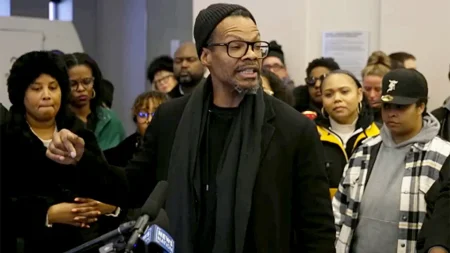Rebuilding Trust in Vaccines: Beyond the ACIP’s Limitations
The American healthcare system faces a critical challenge in restoring public trust in vaccines. While there’s widespread agreement about the need to rebuild confidence in immunization programs, the current approach by the Advisory Committee on Immunization Practices (ACIP) appears insufficient for this complex task. Their presentations and deliberations, sometimes appearing disorganized or unprofessional, may actually undermine the very trust they aim to establish. The committee’s well-intentioned efforts often lack the strategic communication and professional polish necessary to reassure a skeptical public in today’s complex information landscape.
Effective vaccine advocacy requires more than just scientific accuracy—it demands thoughtful, accessible communication that acknowledges public concerns while providing clear guidance. The ACIP’s current approach sometimes falls short, appearing rushed or improvisational rather than carefully crafted to address the psychological and social factors influencing vaccine hesitancy. Public health communication in the modern era requires sophistication and sensitivity, recognizing that technical expertise alone cannot overcome deeply rooted skepticism. A more comprehensive strategy would incorporate insights from communication specialists, behavioral scientists, and community engagement experts alongside medical professionals.
Rebuilding trust means confronting uncomfortable realities about why that trust eroded in the first place. Various factors have contributed to vaccine hesitancy, including misinformation campaigns, political polarization, legitimate questions about pharmaceutical industry practices, and inconsistent messaging during the pandemic. Rather than dismissing these concerns, effective public health leadership must acknowledge them while providing context and clarity. The ACIP’s approach sometimes appears defensive rather than responsive, missing opportunities to engage meaningfully with the legitimate questions many Americans have about vaccine safety, efficacy, and necessity.
What’s needed is a multifaceted approach that combines rigorous science with effective communication. This means developing messages that are not only factually accurate but also emotionally resonant and culturally sensitive. It requires transparency about both the benefits and limitations of vaccines, acknowledging uncertainties while emphasizing the overwhelming evidence supporting immunization programs. Public health officials must balance honesty about rare side effects with clear information about the much greater risks posed by the diseases vaccines prevent. This nuanced approach demonstrates respect for public intelligence while providing the information people need to make informed decisions.
Community-based initiatives may prove more effective than top-down pronouncements from federal committees. Trusted local healthcare providers, religious leaders, educators, and community organizers often have established relationships that federal agencies lack. Empowering these local voices with accurate information and communication resources could help rebuild trust in communities where vaccine hesitancy is high. Additionally, addressing systemic issues that contribute to medical mistrust—including healthcare inequities, lack of access, and historical mistreatment of marginalized communities—is essential for comprehensive vaccine confidence.
Ultimately, restoring America’s trust in vaccines requires a professional, strategic approach that goes far beyond the current ACIP efforts. It demands institutional humility, consistent messaging, accessible education, and meaningful engagement with public concerns. Rather than treating vaccine hesitancy as simply a knowledge deficit to be corrected, public health leaders must recognize it as a complex social phenomenon requiring sophisticated, multi-layered responses. By elevating the quality and thoughtfulness of vaccine communication, addressing systemic issues in healthcare delivery, and engaging communities as partners rather than passive recipients of information, we can begin to rebuild the trust essential for effective public health programs. The stakes—measured in preventable illness, disability, and death—are too high for anything less than our most professional, coordinated efforts.







